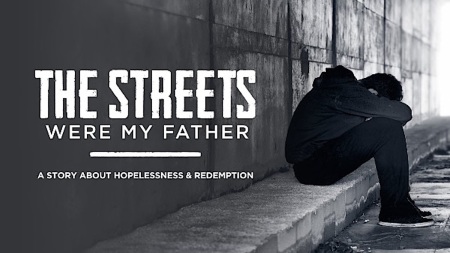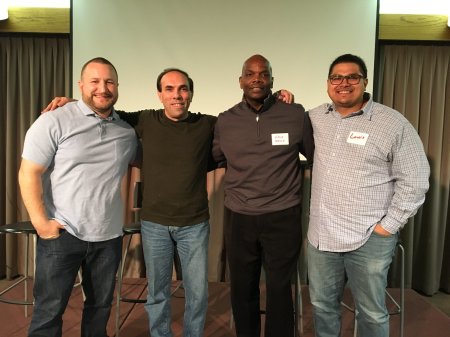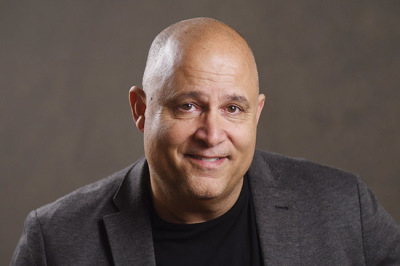‘The Streets Were My Father’ film aims to bring wholeness to people struggling with fatherlessness

Lee Habeeb, the executive producer of “The Streets Were My Father: A Story of Hopelessness and Redemption,” wants people who grew up without a father in their life to know that there is hope this Father’s Day, and that hope is in God.
“The Streets Were My Father” journeys through the real-life testimonies of three inner-city Chicago men who detail their lives that began with fatherlessness and led to gangs, then prison. But their stories didn't end there, because ultimately, they met God.
The documentary, which will be released on Sunday, is described as “an important and inspirational film for anyone who has a father [in their lives]. Or anyone who doesn't. And for anyone who believes in the power of God to transform lives.”
Habeeb told The Christian Post that he wants everyone to know that “there is hope for those trapped in the cycle of fatherlessness.”
The CEO and host of “Our American Stories” said the film is “important for Christians” to share with “men and women without fathers.”

The testimonies of Carlos Colon, Louis Dooley and Leslie Williams showcased in the movie are an example of how, despite not having the best earthly fathers, which left them to be raised by the streets, redemption is still possible.
Each man’s encounter with prison ministry programs helped set them on the road to transformation that led to forgiveness, mercy and love. Each of their salvations in Christ ultimately broke the cycle of fatherlessness in their families.
“God's example of fatherly love is like no other,” Habeeb assured.
Over 2.3 million people are serving time in federal and state prisons or county jails, according to statistics released in the film. Most of those prisoners are fatherless or have strained relationships with their dads. The National Center for Fathering reports that a staggering “43% of all U.S. children live without their father, 85% of youths in prison come from fatherless homes,” and “90% of homeless and runaway children are from fatherless homes.”

The following is an edited transcript of The Christian Post's interview with Habeeb, who shared in detail how his film, “The Streets Were My Father,” shows the power of Christ to change hearts and souls.
CP: What would you like people to take away from “The Streets Were My Father”?
Habeeb: The main takeaway is this: There is hope for those men trapped in the cycle of fatherlessness, gangs, violent crime and prison — and that is God. God changed the lives of all three men featured in our documentary, and in profound and beautiful ways.
CP: The film shows how the lack of having good paternal figures negatively impacts children. For those who need encouragement to be better earthly fathers, what advice would you give?
Habeeb: There is hope. The lives of these three men are proof positive that anyone can break the cycle of fatherlessness with God's help. Indeed, it was the driving motivation of one of the characters in the movie, Carlos Colon. He didn't have a father, and he learned that his father didn't have a father. Carlos wanted desperately to break that cycle with his own son, and he succeeded.
CP: As seen in the film, someone's view of their earthly father can significantly impact their view of the Heavenly Father. How can someone look past the natural to embrace God the Father?
Habeeb: That is what each of these men grappled with, especially Louis. He didn't want to call anyone "father," not even God at first. He was so angry about the loss of his own father to gang violence; angry at his father, and angry at God too. But God kept showing up in some pretty wild ways while Louis was in prison, especially his first few days. Once Louis understood the nature of God's love, things changed for him.
CP: Why is God the best example of a father?
Habeeb: God is patient and gentle and waits for his children. He also gives His children free will and wants His children to choose Him. There is not a coercive element to God, and force is not a part of God's love. In these ways, and so many others, God's example of fatherly love is like no other.
CP: What inspired you to tell the faith aspect of each of these men's stories?
Habeeb: These stories simply couldn't be told without the faith dimension. Indeed, their conversion was a fundamental part of the plot, and their faith became a fundamental part of their identity. Indeed, each of these guys became a truly new person in Christ, and right before our eyes.
CP: What can a faith-based audience do to help people prone to look to the streets to be their father?
Habeeb: Go to local churches and ask a simple question: "How can I help?" We do mission work all over the world, we Christians. And it is a good and beautiful thing. But we also do it in our towns and in nearby neighborhoods and cities. You can also ask the folks who coach and teach in town or the local school principals. They know which young men and women need help, need a mentor or a father figure. Many are hungry for adult guidance and discipleship and don't even know it. But it starts by asking around and then doing a simple invitation.
CP: Is there something else you would like to add?
Habeeb: This is an important film for Christians to give to men and women without fathers. It will give them hope. It is also a remarkable film to give to non-believers because the testimonies of these three men are so powerful. So authentic. And so mesmerizing.
It is also an important film for families to see that have a good father. Sometimes kids don't appreciate what they have, and often in life, we only learn about the value of things in their absence.
This film will create a real-life empathy for those kids without a father. It will also develop a real appreciation for all of us who had good and present fathers. Not perfect fathers. They don't exist. But good and present and purposeful fathers. It is a real privilege to have a great dad. And being a great dad is a real privilege too.
“The Streets Were My Father” is now available.
Jeannie Ortega Law is a reporter for The Christian Post. Reach her at: jeannie.law@christianpost.com Follow her on Twitter: @jlawcp Facebook: JeannieOMusic





















